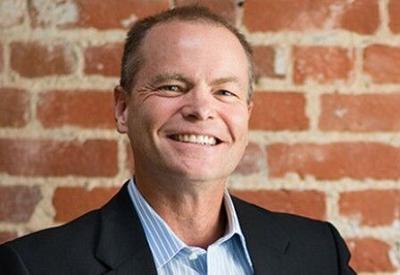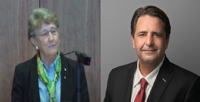
Worthington
PORTLAND, Ore. - An Oregon judge described a plaintiff lawyer’s undisclosed involvement in scientific studies as a “gobsmacking failure” to reveal potentially biased evidence in a high-profile climate lawsuit.
Chevron asked Judge Benjamin Souede to throw out expert opinions Multnomah County submitted to support its lawsuit against oil companies, saying the experts relied upon articles in Nature magazine that may have been financed by attorney Roger Worthington, who represents the county. The company cited a partial acknowledgment in one article, as well as apparent pre-publication copies of articles it found on the Worthington & Caron website.
Judge Souede rejected Chevron’s request, but at a hearing last week said Worthington’s silence was “almost a gobsmacking failure by plaintiff to do anything close to what we expect a counsel and a party to do in litigation.”
“I just want to say it clearly, it is not acceptable to submit a declaration by an expert that is based in part on a reliance on a scientific article that plaintiff’s counsel helped to fund without pointing out to the Court that that is so,” the judge said, in comments reported by Energy in Depth.
Chevron, in a filing last week, said plaintiff expert Daniel Swain relied upon a May 2025 article in Nature on how human-driven climate change increases wildfire risk, without disclosing that Worthington had been involved in producing the article. The authors state only they received “partial support” from Worthington.
Chevron said Multnomah also cited Benjamin Franta, an Oxford scientist associated with climate lawyers Sher & Edling who relied upon the Nature article for his expert opinion opposing dismissal of Multnomah’s case. The U.S. Supreme Court once found a lawyer to have perpetrated a “fraud on the court” by concealing his involvement in creating scientific evidence to support a patent claim, Chevron said.
Worthington is an asbestos lawyer who has joined the trend of representing government plaintiffs on contingency in lawsuits against the oil industry over global warming. He penned several op-eds in local papers supporting his client’s view of the science, identifying himself only as a local brewery owner until being called out for failing to identify himself as the county’s lawyer.
In one opinion piece, he uses language reminiscent of an asbestos trial to describe global warming, telling readers that CO2 is invisible and odorless, but they should imagine it as a purple gas.
“The entire sky would then be a deep, foreboding purple, like an eggplant,” he wrote.
Chevron also took issue with Worthington’s apparent involvement in materials used by the Environmental Law Institute, a nonprofit that holds seminars for judges about issues in climate litigation. The oil company cited marked-up versions of one teaching module that suggested the author was engaged in a discussion with plaintiff attorneys on the wording of materials aimed at judges.
The document “raises significant questions as to whether the law firm is engaged in an effort to prejudice the courts more broadly in its client’s and litigation allies’ favor,” Chevron said.
The county’s case is one of dozens making the same claims around the country. After a round of early defeats in federal courts, private lawyers who scored contingency-fee contracts from government officials retooled their strategy to focus on state-law nuisance and consumer-protection claims.
Most of the lawsuits claim oil companies misled consumers about the consequences of burning fossil fuels, causing them to buy more than they otherwise would.
State and federal judges in Pennsylvania, South Carolina, New York, California, Maryland, New Jersey and Puerto Rico have thrown out climate cases seeking money from oil companies to pay for the effects of global warming, seeing them as an improper attempt to regulate emissions. That is the job of regulators and not judges, they say.
The Supreme Court rejected an appeal of one of the most advanced cases, by Honolulu. But it has signaled interest in an appeal of Boulder, Colorado’s lawsuit against ExxonMobil and Suncor. The Trump Administration, Republicans in Congress and attorneys general of more than two dozen states have asked the court to take up the case and decide once and for all that federal law prohibits state courts from extracting damages from oil companies over global warming.








